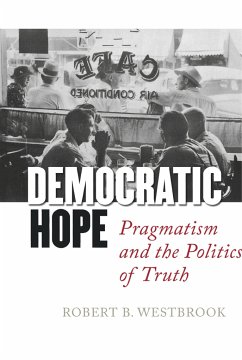Pragmatism, as Richard Rorty has said, "names the chief glory of our country's intellectual tradition." In Democratic Hope, Robert Westbrook examines the varieties of classical pragmatist thought in the work of John Dewey, William James, and Charles Peirce, testing in good pragmatic fashion the truth of propositions by their consequences in experience. Westbrook also attends to the recent revival of pragmatism by Rorty, Cheryl Misak, Richard Posner, Hilary Putnam, Cornel West, and others and to pragmatist strains in contemporary American political thinking. Westbrook's aims are both historical and political: to ensure that the genealogy of pragmatism is an honest one and to argue for a hopeful vision of deliberative democracy underwritten by a pragmatist epistemology and ethics.








